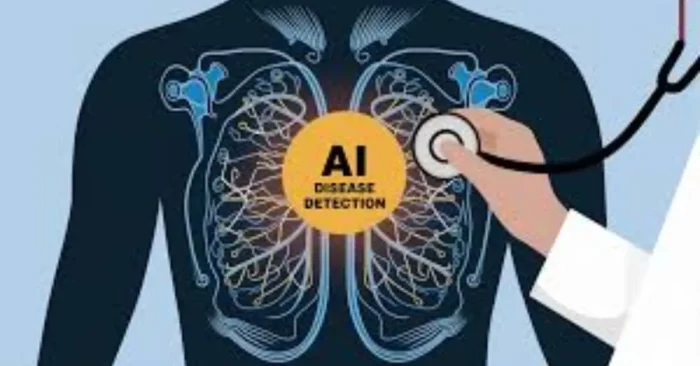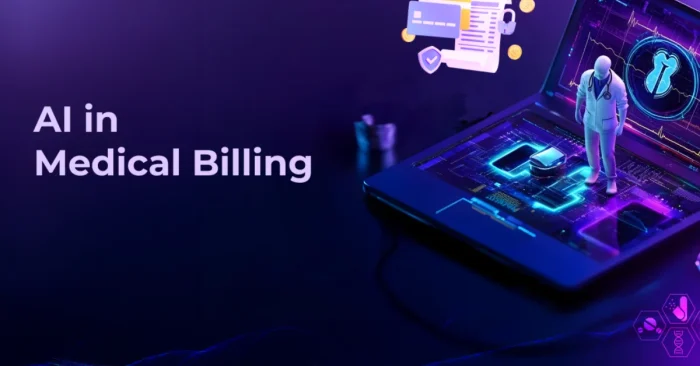Overview
AI tools for disease prediction are reshaping the future of preventive healthcare by using advanced algorithms to analyze patient data and forecast the likelihood of developing certain illnesses. These tools rely on machine learning, big data, genomics, and wearable devices to identify risk factors and detect patterns that humans may overlook. From chronic conditions like diabetes and heart disease to emerging infectious diseases, AI offers early warning systems that enable proactive care. By predicting health risks before symptoms appear, these technologies help reduce medical costs, improve treatment planning, and ultimately save lives through timely intervention.
1. AI for Chronic Disease Prediction
Chronic diseases such as diabetes, hypertension, and cardiovascular disorders can be predicted through AI models that analyze patient history, lifestyle, and genetic data. By identifying risk factors early, AI enables preventive strategies like lifestyle adjustments or targeted screenings. Hospitals benefit by reducing emergency admissions, while patients enjoy improved quality of life. For example, AI can predict a diabetic patient’s risk of complications such as kidney disease, allowing timely medical intervention. This predictive power makes healthcare more proactive, shifting the focus from treatment to prevention and reducing the overall burden on healthcare systems worldwide.
2. AI in Cancer Risk Forecasting
AI tools play a crucial role in predicting cancer risks by analyzing genetic mutations, family history, and lifestyle data. Machine learning algorithms detect correlations that indicate susceptibility to cancers such as breast, lung, or colon cancer. These tools often integrate with medical imaging systems to detect early abnormalities. For high-risk individuals, AI helps doctors design personalized screening schedules and preventive care plans. By identifying risk before cancer develops, AI increases the chances of early detection, which is critical for successful treatment outcomes. This predictive capability empowers patients and clinicians to take proactive measures.
3. AI for Infectious Disease Prediction
AI predicts the spread of infectious diseases by analyzing epidemiological data, travel patterns, climate conditions, and social behavior. For instance, during the COVID-19 pandemic, AI helped forecast infection trends and outbreak hotspots. These tools assist governments and healthcare providers in resource allocation and preventive strategies. On a personal level, AI can predict individual vulnerability to infectious diseases based on immune system data and exposure history. Such predictions are vital for vaccination campaigns and targeted interventions. By combining public health data with predictive models, AI strengthens preparedness for current and future epidemics globally.
4. AI in Cardiovascular Disease Prediction
Cardiovascular diseases are among the leading causes of death globally. AI helps predict risks by analyzing patient data such as cholesterol levels, blood pressure, ECG readings, and lifestyle habits. Predictive algorithms assess the likelihood of heart attacks, strokes, or heart failure before symptoms appear. AI-powered wearables further enhance predictions by continuously monitoring heart rhythms and sending alerts for irregularities. This enables early preventive measures like medication adjustments or lifestyle changes. By forecasting cardiovascular risks accurately, AI tools improve survival rates and significantly reduce the financial and social burden of heart-related conditions worldwide.
5. AI in Neurological Disease Prediction
Neurological conditions such as Alzheimer’s, Parkinson’s, and epilepsy can be predicted with the help of AI models analyzing brain scans, genetic data, and patient history. Early prediction of these disorders allows for better treatment planning and lifestyle interventions that may slow disease progression. For example, AI can detect subtle brain changes long before visible symptoms of Alzheimer’s appear. This provides patients with valuable time to prepare and adapt to treatments. By combining imaging with predictive analytics, AI gives neurologists deeper insights into risk factors and disease trajectories, improving long-term patient care outcomes.
6. AI for Genetic Disease Prediction
AI leverages genomic sequencing and machine learning to identify the likelihood of genetic disorders. By analyzing DNA data, AI tools highlight potential mutations linked to conditions such as cystic fibrosis, sickle cell anemia, or muscular dystrophy. Predictive models integrate genetic risk with family history and lifestyle to provide a holistic view of potential diseases. This knowledge enables couples to make informed family planning decisions and allows healthcare providers to prepare preventive care strategies. By personalizing medical predictions, AI ensures that patients with genetic risks receive timely support, monitoring, and potential therapeutic interventions.
7. AI in Mental Health Risk Prediction
Mental health conditions like depression, anxiety, and bipolar disorder can be predicted using AI tools that analyze behavioral data, speech patterns, and social media activity. These models identify early warning signs of mental distress, enabling timely intervention before conditions worsen. For example, AI can detect subtle changes in voice tone or writing style that may indicate depression. Such predictive tools are valuable in workplaces, schools, and healthcare systems where early detection reduces long-term consequences. By forecasting risks, AI helps mental health professionals provide personalized therapies and preventive support to at-risk individuals.
8. AI for Predicting Complications in Existing Patients
For patients already diagnosed with a condition, AI predicts potential complications and outcomes. For instance, AI tools can forecast the likelihood of complications in diabetic patients, such as retinopathy or neuropathy. Similarly, in cancer patients, AI predicts tumor recurrence risks or side effects of treatments. These insights allow doctors to modify treatment strategies and closely monitor high-risk individuals. Predictive models reduce emergency cases and hospitalization by enabling preventive action. This approach makes healthcare more efficient, ensuring patients receive timely and personalized care tailored to their evolving health risks.
9. AI in Population Health Prediction
AI helps predict disease trends across large populations by analyzing public health records, social determinants, and environmental factors. This enables policymakers to anticipate healthcare needs and allocate resources effectively. Predictive models identify communities at high risk of chronic or infectious diseases, guiding vaccination drives, screening programs, and awareness campaigns. By forecasting future health challenges, AI assists governments in planning better healthcare infrastructure. Population-level prediction is particularly valuable in developing countries where resources are limited, ensuring that preventive care reaches vulnerable groups before widespread health crises occur.
10. AI and Lifestyle-Based Disease Prediction
AI integrates lifestyle data from wearables, fitness trackers, and mobile apps to predict diseases linked to habits such as diet, sleep, and exercise. For example, irregular sleep patterns or low activity levels may predict risks of obesity, diabetes, or cardiovascular issues. By analyzing these trends, AI provides personalized health recommendations to lower risks. Lifestyle-based prediction tools empower individuals to take charge of their health through preventive actions. This approach combines technology and personal responsibility, ensuring early interventions that reduce the chances of developing chronic or lifestyle-related diseases in the future.
(FAQs)
Q1: How accurate are AI disease prediction tools?
AI models are highly accurate when trained on large, diverse datasets. However, predictions are probabilistic and should complement, not replace, medical advice.
Q2: Can AI predict diseases for everyone?
Yes, AI can predict risks for individuals and populations, but accuracy depends on the quality of health, genetic, and lifestyle data available.
Q3: Is personal data safe in AI disease prediction tools?
Most healthcare AI platforms follow strict data privacy and encryption standards, but patients should use trusted, certified systems for maximum security.
Learn More About AI Course https://buhave.com/courses/learn/ai/






